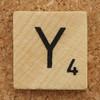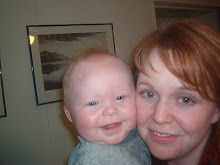This week we studied Skinner's behaviorism theories and I read a lot of intelligent blog posts about learning from my classmates. I don't think that my definition of learning has changed, but I think that there are a few more things that I can add to my original definition. I believe that learning MUST be attached to some prior knowledge. This is so crucial especially for younger students. Just today I was teaching a lesson about writing in one of my English classes. We were talking about "writing" in very broad terms, both narrative and expository. We started talking about the act of writing recipes in the foods class. One girl raised her hand and said, "I just don't understand how you can make a recipe into a story. That doesn't make sense." I thought that was a strange comment and when we finally got to the bottom of it, this girl had no prior knowledge of "writing" in the expository sense. She had always defined "writing" as creating poems and stories. It took just a second to go back and give these students some prior knowledge of writing in all forms.
I especially appreciated the idea of prior knowledge when I did the readings about Skinner’s theories. An emphasis soley on external behavior seems one-dimensional to me. Of course students need positive and negative reinforcement, but I think that there should be a balance. I appreciate Skinner's theories, but above all, I’m looking forward to reviewing all learning theories so that I can use a balance of these in my classroom.
Monday, August 31, 2009
Monday, August 24, 2009
What is Learning Part 1
Learning is so much more than understanding. I think that learning is understanding plus being able to transfer that knowledge or skill into another situation. For example, in my English class, it's great when students can learn to identify and explain a theme in The Odyssey. I know that learning has occurred when students can take that same skill and identify and explain a theme from Romeo and Juliet. Real learning can be applied or transferred into multiple situations.
As a teacher I can effectuate learning by giving my students plenty of examples as opposed to expecting students to generate successful results from the beginning. Successful learning doesn't just happen all of a sudden; successful learning has to be scaffolded and guided. For example, I must give my students examples of themes in many pieces of literature. I must teach student that simply coming up with a simple truth in a piece of literature is not enough. That is a starting point that must be explained and defended. I need to walk students through this process using multiple pieces of literature. Once we do these steps, it is much more likely that students have learned to identify and explain a theme because they have done the steps in various situations. At that point, I must make sure that we discuss that learning at different times throughout the class so they can stay sharp and keep that learning.
As a teacher I can effectuate learning by giving my students plenty of examples as opposed to expecting students to generate successful results from the beginning. Successful learning doesn't just happen all of a sudden; successful learning has to be scaffolded and guided. For example, I must give my students examples of themes in many pieces of literature. I must teach student that simply coming up with a simple truth in a piece of literature is not enough. That is a starting point that must be explained and defended. I need to walk students through this process using multiple pieces of literature. Once we do these steps, it is much more likely that students have learned to identify and explain a theme because they have done the steps in various situations. At that point, I must make sure that we discuss that learning at different times throughout the class so they can stay sharp and keep that learning.
Subscribe to:
Posts (Atom)






